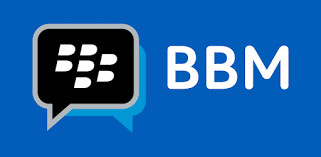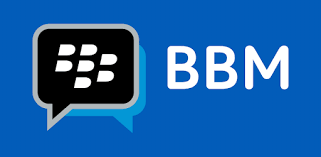
BBM, or BlackBerry Messenger is finally being shut down. BBM is the encrypted messaging service which was among the first to open many to the world of mobile chats. The app was also blamed for the 2011 London riots. It would be shut down starting Friday.
The decision to close down BBM was announced in April by the Indonesian company that owns the service. This allowed a month to its current users to migrate to other similar apps.
“We are proud of what we have built to date. The technology industry, however, is very fluid, and in spite of our substantial efforts, users have moved on to other platforms, while new users proved difficult to sign on,” said the company, Emtek, in a blogpost.
BBM was first used exclusively in phones of BlackBerry – the pocket emailers that are manufactured by the Canadian company RIM. BBM reached a high point in 2009 with the expansion of the range of BlackBerry handsets allowing the phones to be used by people in the consumer market instead of being only a business-focused product.
In the initial days of the modern smartphone, BlackBerry initially managed to successfully ward off the competition from the likes of Apple’s iPhone and other smartphones that were run by Google’s Android operating system by the use of physical keyboards and offering low-cost devices. However, in the summer of 2013, BlackBerry finally succumbed to the competition and released BBM for use in systems powered by iOS and Android. That was just 5 years since the iPhone was first launched. In 2016, BlackBerry exited the phone industry completely.
There was a very high level of public attention for the service after the London riots in 2011. This was because of the finding by the London Metropolitan police that the encrypted nature of the BBM messages prevented security agencies from eavesdrop on any communications using the service, unlike the manner of surveillance possible with older SMS texts. Further, the use of BBM also allowed users to send one-to-many broadcasts more easily compared to most of the phones that were available at that time.
During the London riots, one such encrypted message later unveiled by the police urged “everyone from all sides of London” to riot and destroy shops on Oxford Street.
However, compared to the current standards of protection for messaging, BBM was comparatively weakly protected. The security system that was used by BBM was such that its encryption allowed all messages to be decrypted by Blackberry itself whenever required. In comparison, current encrypted messaging services such as iMessage and WhatsApp are essentially end-to-end which means that only the sender and the receiver of the messages can decrypt them. However, the level of encryption that was used by BBM then led to it getting into tussles with law enforcement agencies which wanted access to decrypt BBM messages.
While the BBM’s consumer version is cutting down currently, the company would continue to run a different version of BBM which is aimed at large businesses – the BBM Enterprise, made by BlackBerry itself.
(Source:www.theguardian.com)
The decision to close down BBM was announced in April by the Indonesian company that owns the service. This allowed a month to its current users to migrate to other similar apps.
“We are proud of what we have built to date. The technology industry, however, is very fluid, and in spite of our substantial efforts, users have moved on to other platforms, while new users proved difficult to sign on,” said the company, Emtek, in a blogpost.
BBM was first used exclusively in phones of BlackBerry – the pocket emailers that are manufactured by the Canadian company RIM. BBM reached a high point in 2009 with the expansion of the range of BlackBerry handsets allowing the phones to be used by people in the consumer market instead of being only a business-focused product.
In the initial days of the modern smartphone, BlackBerry initially managed to successfully ward off the competition from the likes of Apple’s iPhone and other smartphones that were run by Google’s Android operating system by the use of physical keyboards and offering low-cost devices. However, in the summer of 2013, BlackBerry finally succumbed to the competition and released BBM for use in systems powered by iOS and Android. That was just 5 years since the iPhone was first launched. In 2016, BlackBerry exited the phone industry completely.
There was a very high level of public attention for the service after the London riots in 2011. This was because of the finding by the London Metropolitan police that the encrypted nature of the BBM messages prevented security agencies from eavesdrop on any communications using the service, unlike the manner of surveillance possible with older SMS texts. Further, the use of BBM also allowed users to send one-to-many broadcasts more easily compared to most of the phones that were available at that time.
During the London riots, one such encrypted message later unveiled by the police urged “everyone from all sides of London” to riot and destroy shops on Oxford Street.
However, compared to the current standards of protection for messaging, BBM was comparatively weakly protected. The security system that was used by BBM was such that its encryption allowed all messages to be decrypted by Blackberry itself whenever required. In comparison, current encrypted messaging services such as iMessage and WhatsApp are essentially end-to-end which means that only the sender and the receiver of the messages can decrypt them. However, the level of encryption that was used by BBM then led to it getting into tussles with law enforcement agencies which wanted access to decrypt BBM messages.
While the BBM’s consumer version is cutting down currently, the company would continue to run a different version of BBM which is aimed at large businesses – the BBM Enterprise, made by BlackBerry itself.
(Source:www.theguardian.com)














